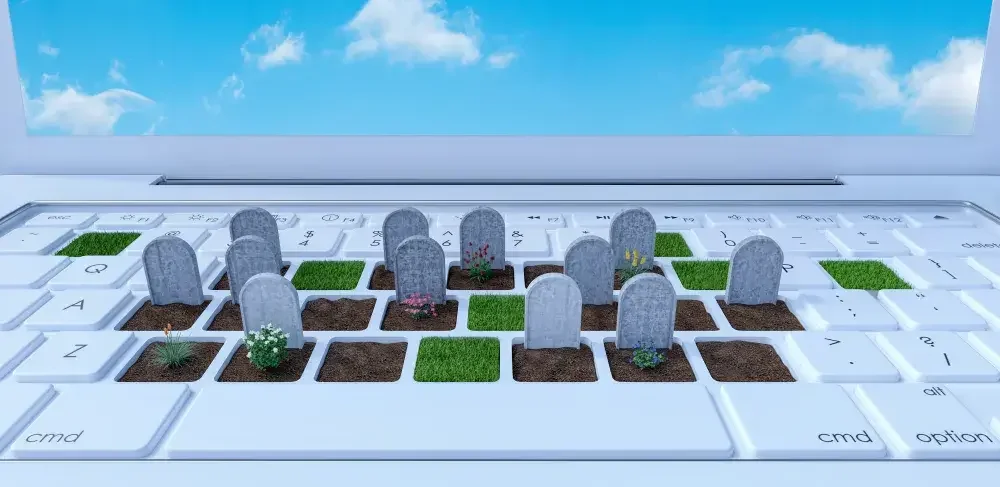If you're like most people, you keep up with friends and family through social media, email, or text, not by sending handwritten letters through the mail. You pay at least some of your bills online and do much of your banking there, too. You also probably have online accounts with various retailers, streaming services, subscription services, your 401(k), and even the local newspaper.
But what happens when you pass away or no longer have the mental capacity to remember your passwords and logins? If you have a will, it will provide for physical assets like your house and car. But a typical will doesn't say anything about your digital accounts or give anyone the authority to access them.
This means valuable data, sentimental items, and even actual cash can get lost, depriving your loved ones of an important legacy. And yet only 16% of adult internet users in a 2017 survey had taken any steps to manage their digital afterlives.

The trouble with digital accounts
The laws and the policies of individual internet service providers often block people from accessing your digital accounts unless you have specifically given permission in a will or other legally binding document. It's not uncommon for family members to be unaware of accounts and unable to log in for something as simple as paying the electric bill.
In addition to causing stress, this can be expensive. There may be late fees because no one paid a credit account, fraudulent purchases were made on shopping accounts, or money was abandoned in online accounts no one knew about. While Facebook allows you to name a legacy contact and Google has procedures for inactive accounts, most online accounts don't have specific procedures for accessing the account of a person who has passed away or become incapacitated.
Listing your accounts
One of the reasons digital assets get lost is that you can't see them. Therefore, it's important to have a list that includes account providers, login information, and account numbers (if applicable). Here are some of the types of accounts to include:
- Financial accounts, such as checking and savings accounts, 401(k)s, IRAs, investment and brokerage accounts, homeowners or life insurance accounts, credit card accounts, loans, PayPal, and health savings accounts
- Bills and subscriptions, including utilities, phones, internet, and streaming services
- Smartphone apps, especially those that include stored credit card information or subscription features
- Email accounts
- Social media accounts
- Accounts that store your photos, information, or documents online
- Any accounts you use in a business or money-making activity
Consider using a password manager such as LastPass to store all your passwords under a single login. This makes your accounts easier to access after you're gone and saves you from having to continually update your list as passwords change.
Making a plan
Once you've listed all your digital assets, it's time to consider what should happen to them. Money in your accounts will become part of your overall estate, and your bills will need to be paid. But that still leaves everything else, including email, social media posts, your blog, the songs you wrote, your video library, and the family photos.
If a digital item has monetary or sentimental value, you may want it downloaded and given to a specific person, or you may want it to be sold. You also can ask for it to be deleted (because, really, no one needs to see what you said on Twitter back in 2016). Sometimes, your desired outcome isn't possible because of a provider's terms of service, but at least your executor will be able to make a choice that comes as close as possible to what you would have wanted.
Naming a digital executor
An executor is a person you name in your will to wrap up your financial and legal affairs after you're gone. A digital executor plays the same role with your digital life. A digital executor must be trustworthy and understand technology. You can have your will's executor do the job, or you can pick someone else.
Name your digital executor in your will and separately tell this person where your passwords are stored, how to unlock your computer and cell phone, and how to access your list that explains how you want your digital assets handled. Do not put these details in your will, which becomes a public record.
With people's lives increasingly operating online, it's important to make a plan for your digital afterlife. Choose a digital executor and make sure that person is equipped with what they need to manage your digital accounts and wrap them up in the way you would have wanted.
It's easy to start an estate plan with LegalZoom. Complete our online questionnaire and get advice from an attorney as you work through the process. Our affordable packages include either a will or a living trust, depending on your needs.

